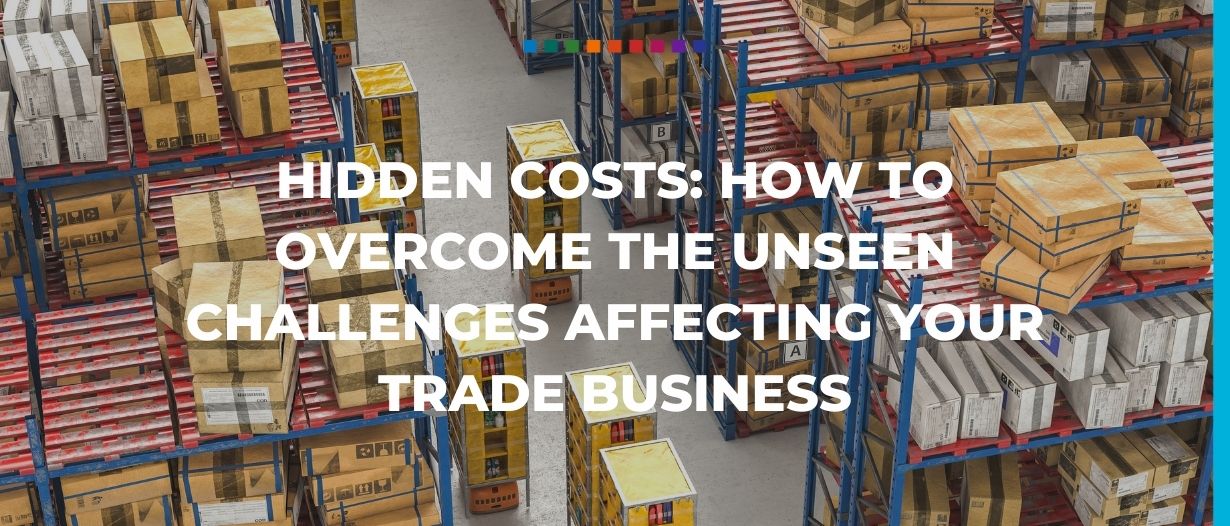The course of running a business isn’t typically a smooth one, and it comes with plenty of twists, turns and bumps to keep owners on their toes. However, that challenge of spinning dozens of plates is something that keeps many entrepreneurs and senior executives coming back for more.
With margins often tight for businesses, every penny spent matters. Research by the UK’s Office for National Statistics discovered that average profit margins were 9.3% for private non-financial businesses, 9.4% for manufacturing companies and 14.9% for service firms in 2019.
Getting a handle on everything coming in and out of a business requires diligence and while you are more commonly aware of the large costs, the smaller, hidden costs can go unnoticed. Hidden costs soon start to mount up and your budget quickly becomes bloated and difficult to manage. That is why it’s so vital to find and overcome the unseen challenges that threaten to derail your business.
Overpriced internet costs and redundant subscriptions
The chances are that some, or perhaps all, of your business interactions and transactions are conducted via your website. Certainly, most modern businesses wouldn’t be without a website for fear of losing business to competitors, missing out on their online marketing leads, and of reducing their visibility to potential customers.
Web hosting is an essential cost for a website but businesses can neglect to negotiate a better deal for themselves due to the importance of having a functioning site. Many web hosting services are willing to haggle if you make the effort. One way for business expenses to rack up without much fanfare is through subscriptions to things like marketing companies, magazines and productivity tools. Many of these will be essential but others will not, or they could be available for cheaper by shopping around.
Merchant account and payment processing fees
Consumer habits have undergone a significant change since 2020, meaning that much of their activities switched to an online focus. In the year following March 2020, consumers who were buying online more than before rose from 41% to 71%.
The nature of buying online means a cash transaction isn’t possible, so many businesses will have noticed the frequency of their merchant and payment processing fees increasing. With credit card processing costing approximately 3% of a transaction, this quickly becomes a major expense that many businesses hadn’t fully accounted for.
As more and more consumers come to expect an online purchase option, it’s not a viable option for a company to refuse to accept credit and debit transactions. One way to help reduce your payment processing fees is to enter into negotiations with your credit card processors. You can add value to the processor by leveraging your transaction volume, meaning the more you give them the more open they are to negotiating a reduced fee.
Recovering overdue payments
No company sets out to be lumbered with overdue payments but they are, unfortunately, common. In terms of small businesses, overdue payments are a serious problem and cause one in four to struggle to cover their business costs. Late and overdue payments reduce a company’s cash flow which diminishes its ability to pay for important costs like rent, payroll, utilities and insurance.
Research by Barclays discovered that 57% of small or medium UK enterprises are waiting on late payments from customers. Putting a debt recovery plan in place is important because the longer an invoice is left unpaid, the less likely it will be paid at all. A clear set of terms and conditions for customers helps speed recovery along, and while a 30-day repayment period is common, this can be shortened.
Claiming compensation for payments not received beyond the agreed timeframe is well within the rights of any business. Businesses can safeguard themselves against consistently overdue payments with invoice discounting, which provides them with a working income while they wait for payments.
Protecting against cybercrime
Businesses are operating more and more online and on cloud computing software. This puts them in contact with would-be cybercriminals at most interface points, meaning they must use robust software to prevent hackers from gaining vital company data. A staggering 60% of SMEs close within six months of being hacked.
Creating good digital practices for employees to follow is a great place to start but companies must remain vigilant and budget for additional security services.
Cybersecurity expert, Redscan, provides penetration testing, which is sometimes known as ethical hacking to organizations. On cybersecurity, Redscan warns, “In most real-world attacks, a persistent adversary will conduct reconnaissance on the target environment, giving them similar knowledge to an insider”.
Penetration testing can examine the defenses of web and mobile applications, wireless networks plus internal and external infrastructure like firewalls, cloud networks, and internet-facing infrastructure. Cybersecurity is an essential business cost that is much cheaper than the damage caused by an attack or intrusion.
Logistical and supply chain oversights
Unfortunately for any business that ships products and receives supplies, haulage, and the supply chain pose many hidden costs. Delayed products result in time and money being lost, and they can harm customer relations.
Companies may also fail to recognize the true cost of a product’s lifecycle. The purchase price is the figure that resonates with us all, while shipping and inspection costs are par for the course for many businesses. But, there are also hidden costs associated with inefficient supply chains and logistics.
Quantifying the time a product spends on the shelf should incorporate rent, overheads, and insurance as those costs are all relevant. The cost of processing and returns should also be taken into account.
Planning and negotiating encourages savings
When it comes to saving costs on freight, it’s important to do your due diligence before entering into a partnership or arrangement with a company. Check a firm’s reputation and request quotes with a detailed outline of your requirements.
Seeking recommendations from professional contacts whose judgment you trust is another step in finding the perfect logistics partner. As for costs associated with having stock just sitting around, negotiating better rates on your rent and insurance can help to bring overall costs down.
Preventing inventory shrinkage
The reason stock levels shrink is due to shipments being short, picking errors in warehouses, damaged goods, and theft. In 2019, the estimated cost of inventory shrinkage rose to more than £10 billion per year.
Losing stock and inventory is made more avoidable with an inventory management system. Using barcodes and scanners, companies can maintain real-time data on the whereabouts of their stock.
Practically anything and everything can be itemized, from raw materials to finished consumer products. Inventory tracking at least indicates where any stock is disappearing and allows companies to put actions in place to reduce shrinkage.
Build a budget to avoid unseen costs
The best way to avoid hidden costs in business is to plan and map out all of your expenses. Easier said than done, of course, but failing to start a business budget will ultimately result in a continuous string of unforeseen expenses. Even if something new crops up, by documenting and acknowledging it, you can plan for it coming back up in the future.
 Australia
Australia Hong Kong
Hong Kong Japan
Japan Singapore
Singapore United Arab Emirates
United Arab Emirates United States
United States France
France Germany
Germany Ireland
Ireland Netherlands
Netherlands United Kingdom
United Kingdom














Comments are closed.